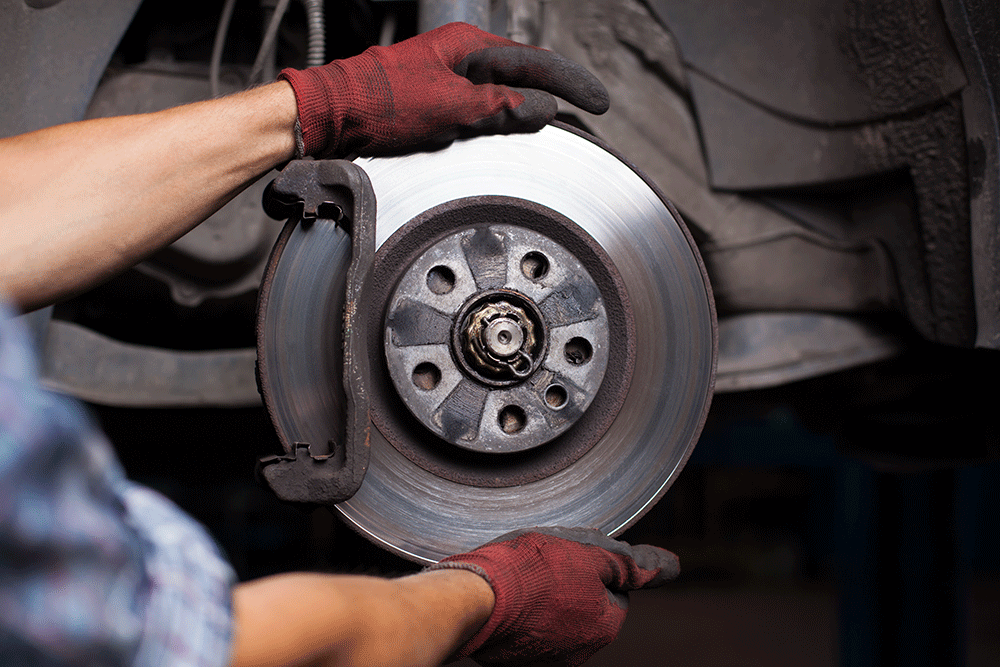When having your vehicle inspected, also remember to check the brakes. The brakes allow you to slow the vehicle down, and eventually have it stop. This is an important safety feature that should not be ignored. The braking system in your vehicle operates under hydraulic pressure. The process starts with the master cylinder, which is located in the engine compartment. The master cylinder is filled with brake fluid. When the brake pedal is pressed, it sends a plunger into the master cylinder that builds up hydraulic pressure. The hydraulic pressure is then transferred through a series of brake lines that line up to each individual wheel. This balances the correct amount of pressure to the front and rear axis in order to stop or slow down the vehicle properly.
The Brake Pads Should be Inspected
When checking the brake system, make sure that the brake pads are correct. Brake pads are an important part of your vehicle’s brake system. Brake pads are the component that contacts, applies pressure, and friction to a vehicle’s brake rotors. The pressure and friction that is applied to the brake rotor is what slows and stops the vehicle. Brake pads undergo a large amount of stress every time you slow down or come to a stop. How much stress depends on how much the car or truck weighs and how quickly the rotor wheel is rotating. If you notice anything out of the norm, make sure to bring the vehicle in and we can inspect the brake system for you.
Signs that the Brakes are Going Bad
Neglecting bad brakes is not something you should set aside. By being aware of the signs that your brakes are going bad you can save putting yourself and others at risk. One sign that your brakes are in need of repair is if you notice a high-pitched squeal every time you come to a stop. This could indicate that your brake pad is worn. When the brake pad is worn, the brake makes contact with the rotor causing rubbing and making a squealing sound. Hearing a grinding noise when you apply the brake can mean the metal on the base of the pad is exposed. Shaking or vibration in the steering wheel when you apply the brake is another sign of bad brakes. Shaking can be caused by a misalignment between the pad and rotor making the parts to not work properly. Always inspect the area where you park your car for fluids and leaking. If you notice anything out of the norm with the braking system, make sure to schedule an appointment with us.
Reduce Wear and Tear on the Brakes
When braking from high speeds, the brakes will work harder. This can warp the brakes more quickly. You can reduce brake wear by easing on to the brake pedal when braking from high speeds. This causes your speed to decrease evenly and slowly. This allows your brakes to work correctly. Also try not to ride the brakes, but instead anticipate stops you might make. This can help extend the life of the brakes.




